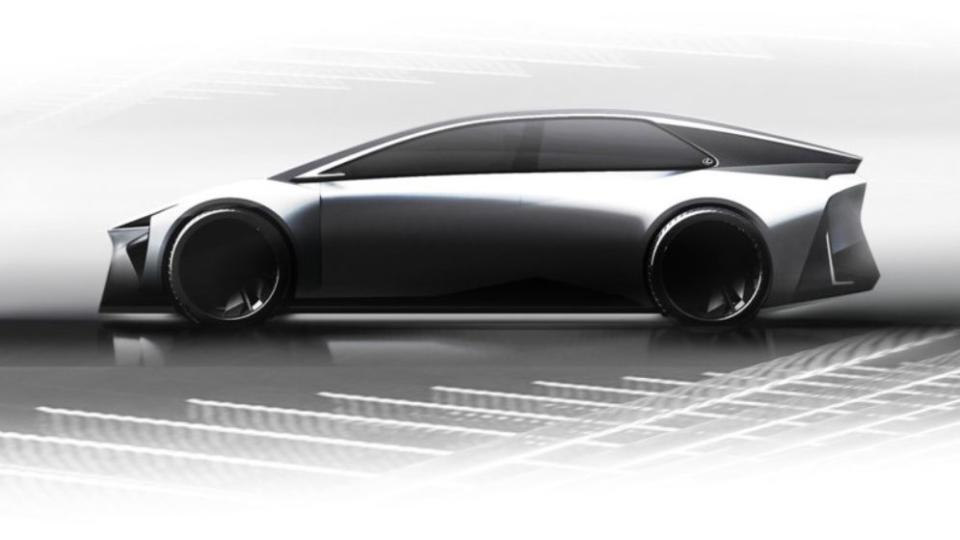Here’s Exactly When Toyota Promises Solid-State Batteries

Toyota reveals roadmap for several types of batteries it plans to begin producing this decade, with four separate families of batteries meant for different vehicles.
The Japanese automaker plans to introduce solid-state batteries to its vehicles in the 2027-'28 timeframe, predicting a fast-charging time of 10 minutes or less.
Toyota is also working on LFP batteries, which will arrive sooner and will be aimed at less expensive mass-produced models, promising a significant reduction in cost compared to the batteries currently used in the bZ4X.
Toyota may be just getting started in the EV race—it has a grand total of one battery-electric model on sale—but the automaker is already planning several generations ahead when it comes to batteries. It revealed a detailed roadmap for its battery technology during the launch of a BEV factory in Europe, and it's nothing short of ambitious.
The automaker unveiled plans for four next-gen batteries it intends to produce in the coming years, each with different goals, technology, ranges, and price points.
When it comes to batteries with liquid electrolytes, Toyota divided them into three separate categories.
First, the automaker's Performance lithium-ion battery tech is slated to arrive in 2026, and promises a range of over 497 miles (800 kilometers) in addition to a 20% reduction in cost compared to current lithium-ion batteries found in the bZ4X. This category of battery also promises a rapid recharging time of 20 minutes or less.
The second battery family is dubbed Popularization, and it will be a lithium iron phosphate (LFP) composition promising a 20% increase in range as well as a 40% reduction in cost, compared to the bZ4X. This battery type is slated to arrive in 2026 or 2027, and will target a fast recharging time of half an hour or less.

So it will be a bit slower to recharge, but will still offer more range than the battery found in the automaker's debut electric SUV.
"We will need various options for batteries, just like we have different variations of engines. It is important to offer battery solutions compatible with a variety of models and customer needs," said Takero Kato, president, BEV Factory.
The third battery type Toyota plans to put into production in the coming years has been dubbed simply High-Performance, pairing a high nickel cathode with a bipolar structure with lithium-ion chemistry. This battery promises to be 10% less expensive to produce than the Performance type, and will also offer a charging time of 20 minutes or less. This battery type is currently expected to arrive in 2027 or 2028.

Finally, Toyota is also working on solid-state battery technology—still the holy grail of battery developers. Even with a few claimed breakthroughs by a number of tech startups, solid-state batteries aren't expected to arrive until the second half of the decade in a best-case scenario, by most estimates. And Toyota's own efforts reflect this view as well.
As other developers, Toyota has been working on solid-state compositions for several years, hoping to combine a more compact design that can hold more power with rapid charging and discharging capabilities.
"The trade-off, until now, has been an expected shorter battery life. However, recent technological advancements by Toyota have overcome this challenge and the company has switched its focus to putting solid-state batteries into mass production," Toyota notes.
This battery type is still projected to arrive in this decade, by 2027 or 2028 according to the automaker's internal estimates, promising 20% increase in range compared even to the Performance battery family, and a fast-charging time of 10 minutes or less—both ambitious targets.
But Toyota is betting on one other factor to increase EV range even with these next generations of batteries—aerodynamics. And this mean batteries that will have to be flatter.
"If the height of the battery can be reduced then it follows that the overall height of the vehicle can be reduced, CdA can be improved and overall range can be increased," the automaker points out.

We've already gotten a preview of just how low Toyota will go with the new 2023 Prius hybrid, which features a very rakish windshield to squeeze out more aerodynamic efficiency. This thinking will be applied to battery packs as well, Toyota hints.
"Today the battery pack of the bZ4X, including casing, is around 150mm high," the automaker noted. "Tomorrow, Toyota plans to reduce the battery height to 120mm, and even 100mm in the case of high-performance sports vehicles where a low hip-position is also desirable."
Of course, before all of these batteries arrive, Toyota has to bring more EVs to market with its existing tech, which has gotten a bit of a shaky start with issues that were seen in the debut bZ4X.
The rare and embarrassing stumble for the automaker renewed concerns that it was trying to make up lost time when it comes to battery R&D, after largely ignoring the EV craze of the 2010s and spending time and money on hydrogen tech.
Will we see dramatic gains in range and reductions in cost when solid-state batteries arrive on the market, to the point that several US states will be able to transition to ZEV-only sales by 2035? Let us know what you think.

 Yahoo Autos
Yahoo Autos 